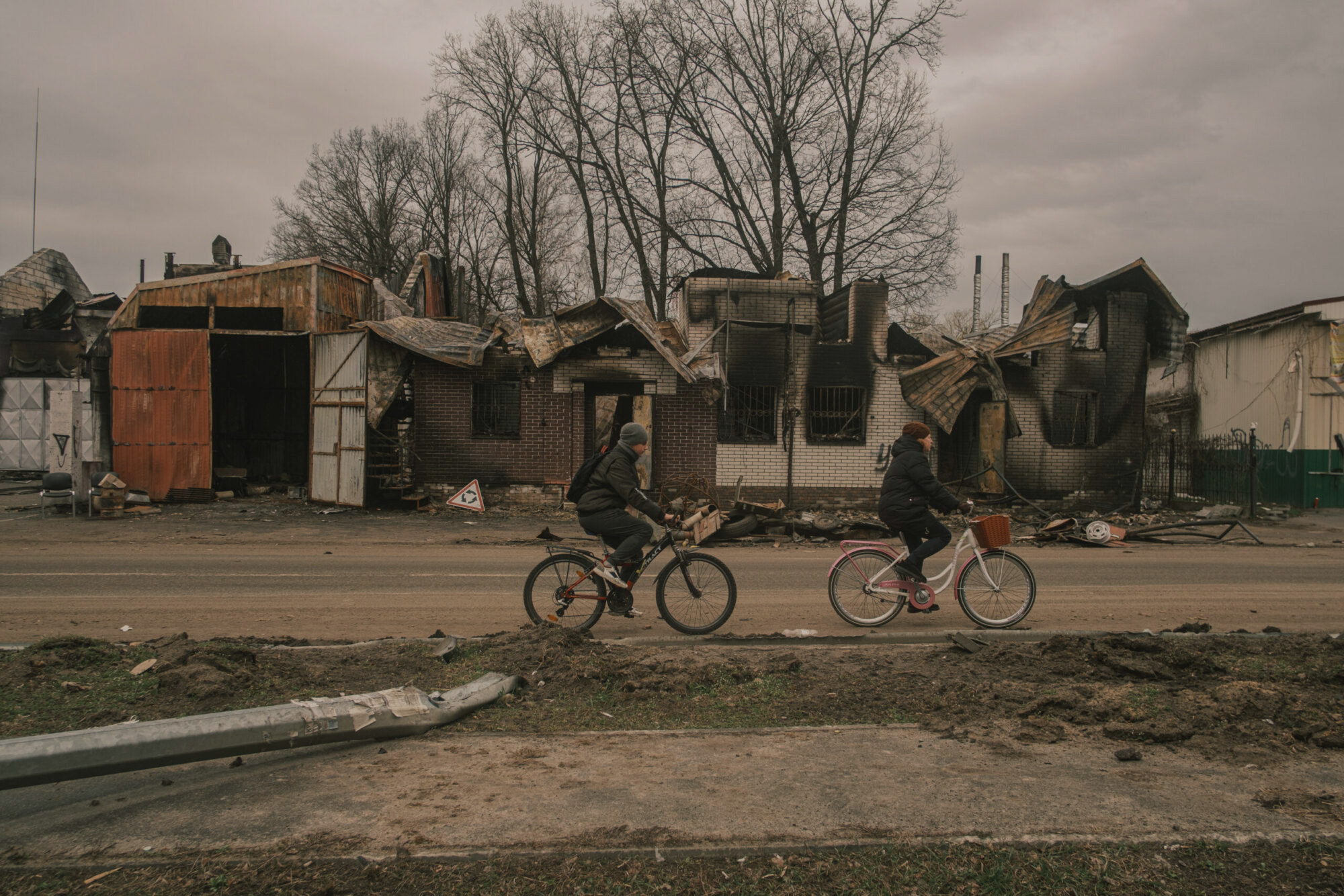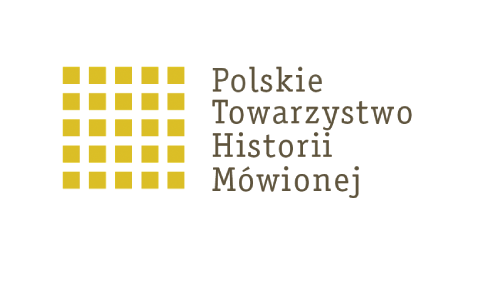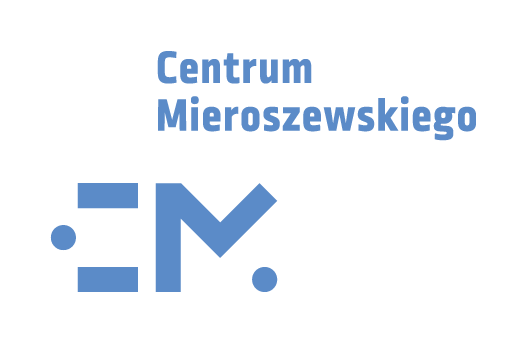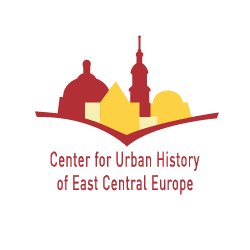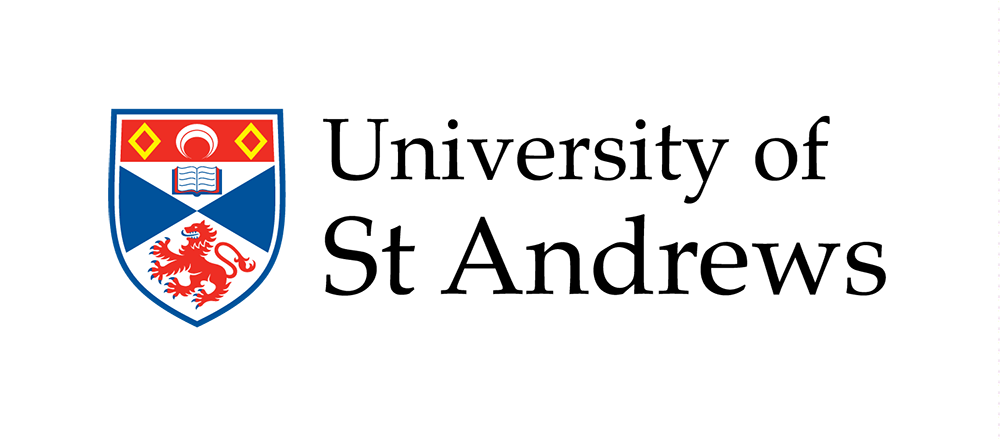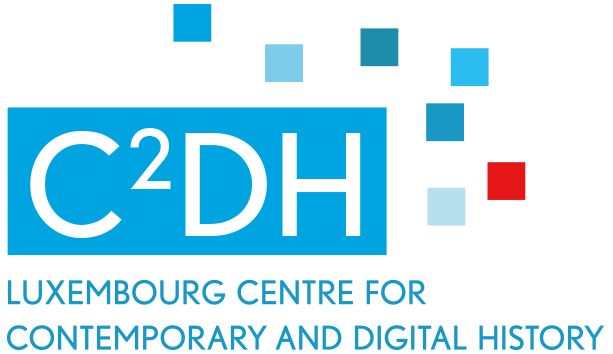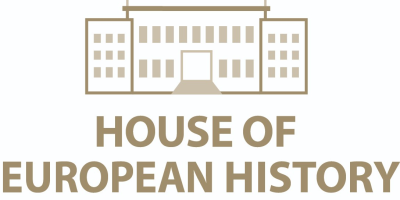About
On 24 February 2022 at 5am, Russian forces launched an invasion of independent Ukraine, an unprecedented event in post-war European history, which is still ongoing. The goal of our project is to record testimonies documenting the experience of Ukrainian citizens affected by the war. Accounts are being recorded in Ukraine, Poland and in other countries where Ukrainian refugees have arrived – at this stage in Luxembourg and the UK. This page is dedicated to activities undertaken in Poland.
As historians and social scientists, we want to focus on recording the human dimension of what is happening. The situation in Ukraine is changing very fast, so it is an important task to capture this change and document the subjective experience of its actors. An additional dimension is to document the crimes committed by the Russian side. It is our duty to record for posterity – for historians, for Polish and Ukrainian society, but also for every European – the experience of flight, resistance and aid on an enormous scale resulting from the Russian invasion. We also have a duty to give voice directly to those who have experienced all of this and to make their voice heard.
We make every effort to ensure that the recorded accounts are produced with respect for the rights and dignity of the people recorded, but also that they are properly preserved to enable their later use by researchers, in educational, cultural and artistic activities. The collected accounts will be archived according to the rules set by the interviewees themselves and will only be available to registered users of individual archives. For more information on ethical issues, methodology and the archiving of material, see “Methodology and ethics”.
In Ukraine, our interviews primarily focus on the experience of living in a country at war and on internal displacement and relief. In Poland, we focus on what the refugees living in our country have experienced and are experiencing. We try to reconstruct the situation immediately before the outbreak of war, the time just after the incursion of Russian forces, the decision to leave the country, the journey, the process of crossing the border and the first period after arrival in Poland. We also ask about how the adaptation to the new living conditions proceeded, including the search for work, housing, educational and childcare facilities, about the refugees’ contacts with relatives remaining in Ukraine, as well as their relations with Poles.
In our project, we try to capture different types of refugee experience. Out of the almost 6 million Ukrainians who have entered our country since the beginning of the war, significant numbers have moved on to other European countries, while some have chosen to return to Ukraine. Refugees have reached Poland directly from Ukraine, but also through Romania and Slovakia. These refugees also represent different social groups and backgrounds, although they are mostly women with children as men of conscription age are forbidden from leaving the country. Our project also aims to gain a better understanding of the situation of this internally diverse group.
Initiating reflection on the ethics and methodology of documentation, research and archiving projects of an interventionist nature is an integral part of the project. We organise seminars and open meetings for interested people from outside the team and look for ways to cooperate with other similar projects, also outside Poland.
Team
The project was initiated by the Centre for Urban History of East Central Europe in Lviv, which records interviews in Ukraine (Dr. Natalia Otrishchenko, Dr. Sofia Dyak). In Poland, the project is being implemented by the Institute of Philosophy and Sociology of the Polish Academy of Sciences, where interviews will be archived, while the Polish Oral History Association, which brings together those who practice oral history in their research, acts in an advisory capacity. Our other Polish partner is the Mieroszewski Centre. Methodological and technical support is also provided by partners from Luxembourg and the UK: the Center of Contemporary and Digital History at the University of Luxembourg (Prof. Machteld Venken) and the University of St Andrews (Dr. Victoria Donovan, Dr. Diana Vonnak). In the future, it is possible to expand cooperation by including partner institutions from more countries.
Project leader in Poland:
Anna Wylegała (Institute of Philosophy and Sociology,
Polish Academy of Sciences)
The coordination team in Poland:
Małgorzata Łukianow (University of Warsaw)
Marcin Jarząbek (Jagiellonian University)
Wiktoria Kudela-Świątek (KEN Pedagogical University of Kraków)
Assistant for organisational matters:
Róża Kochanowska
In Poland, accounts in Ukrainian and Russian are recorded by:
Katarzyna Jędraszczyk, Grzegorz Kaczorowski, Olena Kondratiuk, Wikoria Kudela-Świątek, Elżbieta Kwiecińska, Jaryna Łazar, Małgorzata Łukianow, Irena Pańków, Oksana Trybun, Natalia Wisłocka, Anna Wylegała.
Methodology and Ethics
Interviews in the project are recorded according to a carefully prepared questionnaire, developed jointly by representatives of all the institutions implementing the project. Accounts put emphasis on the reconstruction of facts and the changing realities of everyday life rather than emotions, in order to prevent secondary traumatisation of interviewees. The questionnaire was prepared in cooperation with psychologists and psychotherapists.
Our most important methodological assumption is to minimise harm and ensure maximum comfort and safety for both those who are being recorded and those who are recording. We only talk to adults who are in a safe place, whose housing and basic living needs have been met, and who have been in Poland for at least four weeks. The project only involves people who are convinced that they can share their experience with us. Interviews are recorded in the language chosen by the interviewee (Russian or Ukrainian). The interviewee decides which questions they will answer (they receive them in advance for review), as well as under what conditions their recording will be archived and made available. This applies in particular to the issue of anonymisation. At any stage of the project, it is possible to withdraw participation and consent to the use and sharing of accounts.
Interviews are recorded exclusively by experienced researchers with fluency in Ukrainian or Russian. The recorders have received detailed training in the methodology of recording testimonies according to the questionnaire developed in the project and they participate in regular supervision meetings, including ones with a psychotherapist. The project team participates in methodological seminars on working with traumatised people, where research on such issues as the Balkan wars or natural disasters is discussed.
We have prepared guidelines for projects documenting the war and refugee experience following Russia’s invasion of Ukraine – download file: Methodology
Interviews recorded in Poland will be archived in the Qualitative Data Archive at the Institute of Philosophy and Sociology of the Polish Academy of Sciences, while a copy will be sent to the Center of Contemporary and Digital History at the University of Luxembourg. When transfer of personal data to Ukraine is assessed as safe, all the materials will also be provided to the initiator of the project, the Center for Urban History in Lviv. Interviews archived at the QDA will be subject to the standard archiving procedures followed at this archive. Access to the acquired material will be possible only for registered users, after submitting a written commitment to respect the rules of using the material, and upon approval from the administrator of the collection, to the extent agreed with interview participants.
The project has received an ethical recommendation from the Polish Oral History Association and a positive opinion from the Ethics Committee of the Institute of Philosophy and Sociology of the Polish Academy of Sciences and the Ethical Review Panel at the University of Luxembourg.
News
Supporting Institutions
We are supported in the implementation of the project by the Academic Council and the Advisory Committee. The Advisory Committee is composed of scientists with experience in conducting research on topics that correspond to the issues covered by our project and experts from outside the academic sphere. They provide us with advice and support during all stages of the implementation of the project. We have invited eminent representatives of the scholarly world to the Academic Council, making them ambassadors of our project by virtue of their authority.
The Advisory Committee
Łukasz Biedka (clinical psychologist)
Viktoria Sereda (Ivan Franko Lviv National University)
Daria Mattingly (University of Cambridge)
Hana Kubatova (Charles University, Center for the Transdisciplinary Research of Violence, Trauma and Justice)
Ivana Macek (Stockholm University)
Stephen Naron (Yale University)
Nerina Weiss (Fafo Institute for Labour and Social Studies)
The Academic Council
Olesya Khromeychuk (Ukrainian Institute London)
Barbara Engelking (Polish Centre for Holocaust Research)
Dariusz Stola (Institute of Political Studies, Polish Academy of Sciences)
Katerina Kralova (Charles University)
Tetiana Zhurzhenko (University of Vienna)
Natalia Chernysh (Ivan Franko Lviv National University)
Maryna Grymych (writer, anthropologist)
Jevhen Holowakha (Institute of Sociology, Academy of Sciences)
Maciej Wyrwa (Mieroszewski Center)

